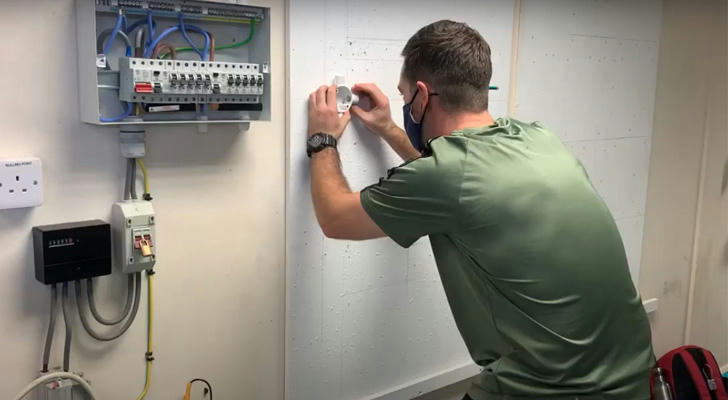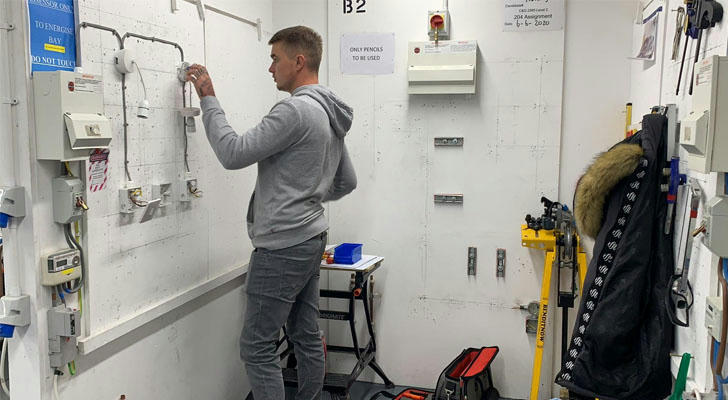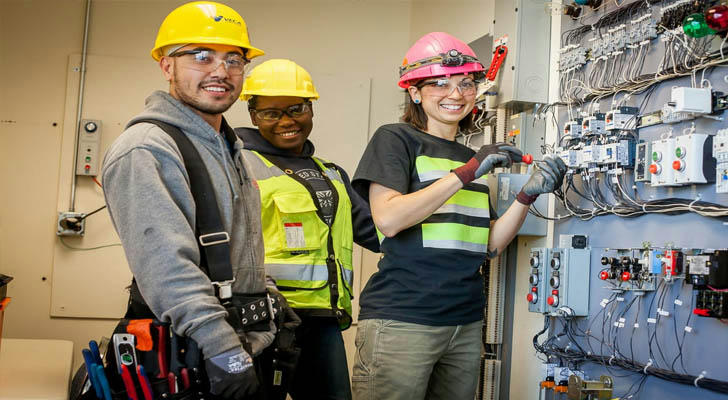Electrician Course: A Learning Path from Beginner to Expert
Embarking on a career as an electrician can be both exciting and rewarding. Electricians are essential in our modern world, ensuring that electrical systems are safe, efficient, and functional. This article outlines a comprehensive learning path for those interested in becoming electricians, detailing the steps from initial education to advanced expertise.

Understanding the Electrician's Role
Electricians are skilled tradespeople who install, maintain, and repair electrical systems in various settings, including residential homes, commercial buildings, and industrial facilities. Their work involves understanding complex electrical systems, troubleshooting issues, and adhering to safety regulations. As technology continues to evolve, electricians must stay current with new tools and techniques, making ongoing education a vital part of the profession.
Stage 1: Basic Education
High School Diploma or GED
The first step toward becoming an electrician is obtaining a high school diploma or a General Educational Development (GED) certificate. This foundational education is crucial, as it equips you with essential skills in mathematics and science—both of which are fundamental to understanding electrical concepts.
Introductory Courses
After high school, aspiring electricians should consider enrolling in introductory courses related to electrical work. Many vocational schools and community colleges offer programs that cover basic electrical theory, safety practices, and the use of tools. These courses provide an excellent starting point for anyone looking to enter the field.
Stage 2: Apprenticeship
Finding an Apprenticeship Program
Once you have completed your basic education and introductory courses, the next step is to find an apprenticeship program. Apprenticeships typically last three to five years and combine on-the-job training with classroom instruction. During this time, you will work under the supervision of experienced electricians, gaining hands-on experience while learning the trade.
Skills Development
Throughout your apprenticeship, you will develop a wide range of skills essential for success as an electrician:
Electrical Theory: Understanding key concepts such as voltage, current, resistance, and circuits.
Installation Techniques: Learning how to install wiring systems, outlets, switches, and lighting fixtures.
Troubleshooting: Developing problem-solving skills to identify and fix electrical issues.
Safety Practices: Mastering safety protocols to ensure a safe working environment.
Classroom Instruction
In addition to hands-on training, apprenticeships often include classroom instruction covering topics such as:
National Electrical Code (NEC)
Electrical blueprint reading
Circuit design
Maintenance and repair techniques

Stage 3: Certification and Licensing
Obtaining Certification
After successfully completing your apprenticeship, you may need to obtain certification or a license to work as a professional electrician. Requirements vary by state or country but typically involve passing an exam that tests your knowledge of electrical theory, codes, and safety practices.
Continuing Education
Even after becoming certified or licensed, continuing education is crucial in this field. The electrical industry is constantly evolving with new technologies and regulations. Many states require electricians to complete continuing education courses periodically to maintain their licenses.
Stage 4: Specialization
Exploring Specializations
Once you have gained experience as a general electrician, you may choose to specialize in a particular area. Common specializations include:
Residential Electrician: Focuses on wiring homes and installing fixtures.
Commercial Electrician: Works on larger buildings like offices and retail spaces.
Industrial Electrician: Specializes in electrical systems used in manufacturing plants.
Low Voltage Technician: Works with low-voltage systems such as security alarms and telecommunications.
Specializing can enhance your job prospects and increase your earning potential.
Stage 5: Advancing Your Career
Gaining Experience
As with many professions, gaining experience is key to advancing your career as an electrician. Seek out challenging projects that allow you to develop new skills. Consider taking on leadership roles within your workplace or mentoring apprentices to further enhance your expertise.
Pursuing Further Education
For those looking to move into management positions or start their own electrical contracting business, further education can be beneficial. Consider pursuing degrees in business management or engineering technology. These qualifications can provide you with the skills needed for higher-level positions within the industry.
Networking Opportunities
Building a professional network is also important for career advancement. Attend industry conferences, join professional organizations such as the National Electrical Contractors Association (NECA), or participate in local trade shows. Networking can lead to new job opportunities and collaborations.

Conclusion
The journey from beginner to expert electrician involves several stages of education and training. Starting with a solid educational foundation, progressing through an apprenticeship program, obtaining certification or licensing, exploring specialization options, and continually advancing through experience and further education are all critical steps in this journey.
Becoming an electrician offers not only job security but also opportunities for growth in a field that is always in demand. With dedication and hard work, anyone can navigate this learning path successfully and enjoy a fulfilling career as an electrician. Whether you're just starting out or looking to enhance your skills further, remember that every step taken brings you closer to mastering this essential trade.
